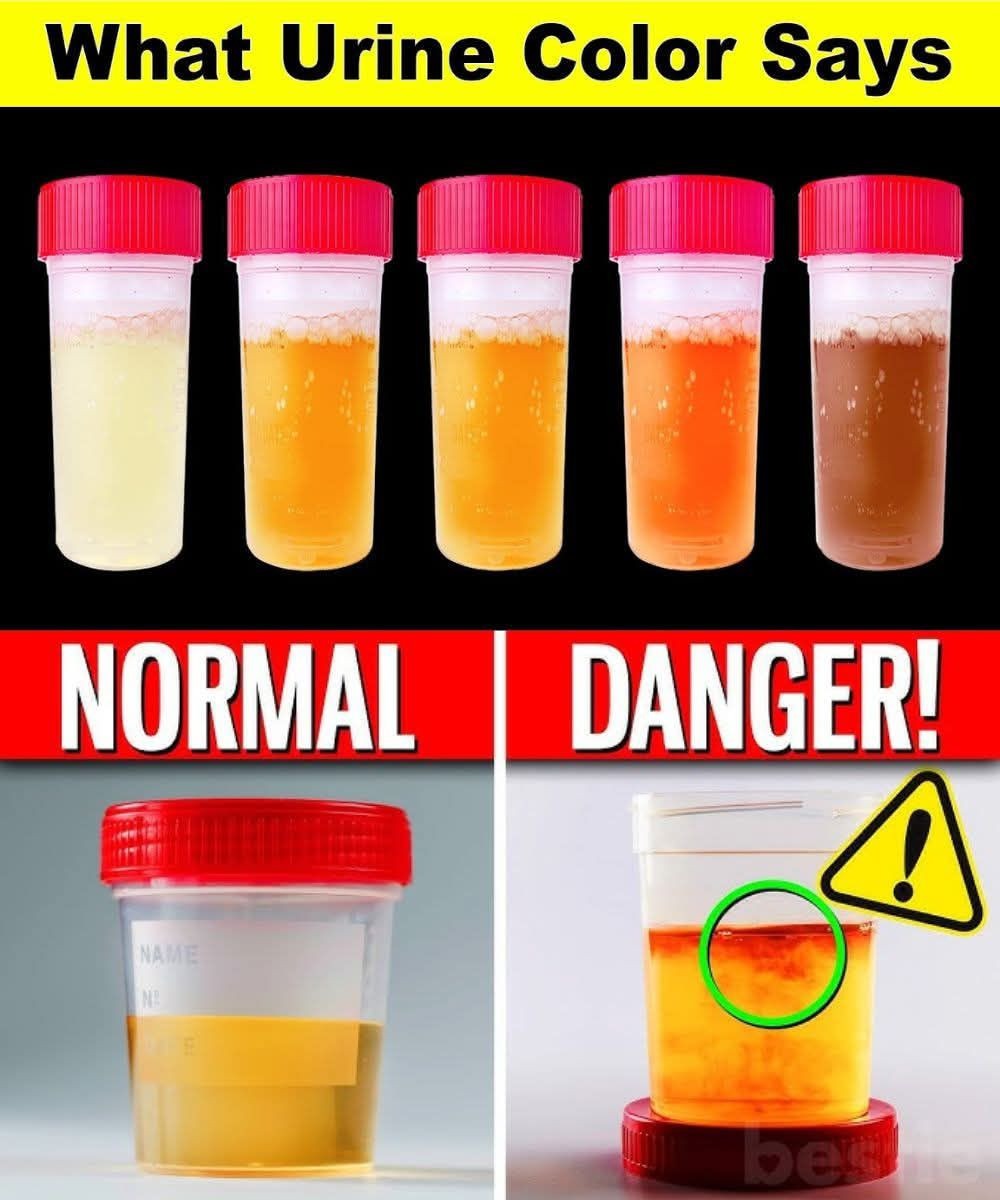Brown or Cola-Colored Urine: A Serious Warning Sign
Brown or cola-colored urine should never be ignored, as it can point to more severe health problems.
Potential Causes
Severe dehydration.
Liver disorders such as hepatitis or cirrhosis.
Breakdown of red blood cells (hemolysis).
Muscle injury leading to rhabdomyolysis, a condition that releases harmful proteins into the bloodstream.
What You Should Do Immediately
If dark brown urine is accompanied by fatigue, nausea, or yellowing of the skin, seek medical care without delay. Early treatment can prevent complications.
Foamy or Cloudy Urine: Protein or Infection Alert
Cloudy or foamy urine can be another warning sign that deserves attention.
Possible Explanations
A urinary tract infection (UTI), especially if accompanied by a strong odor or a burning sensation.
The presence of protein in the urine, which may signal kidney problems.
Excessive phosphate in the urine, sometimes related to diet or dehydration.
When to Get Checked
If your urine remains foamy or cloudy for more than a few days, consult a doctor for proper testing. Early evaluation helps protect kidney function and overall health.
Final Thoughts: Why Monitoring Urine Matters
The color of your urine provides a simple yet powerful window into your health. While occasional changes may be harmless and linked to diet, supplements, or temporary dehydration, persistent or unusual changes should not be ignored.
Key Takeaways
Stay hydrated: Drink enough water daily to keep urine light yellow.
Pay attention to diet and medication: Some foods and drugs naturally affect urine color.
Seek medical help when necessary: Unexplained or persistent changes may point to underlying conditions requiring attention.
